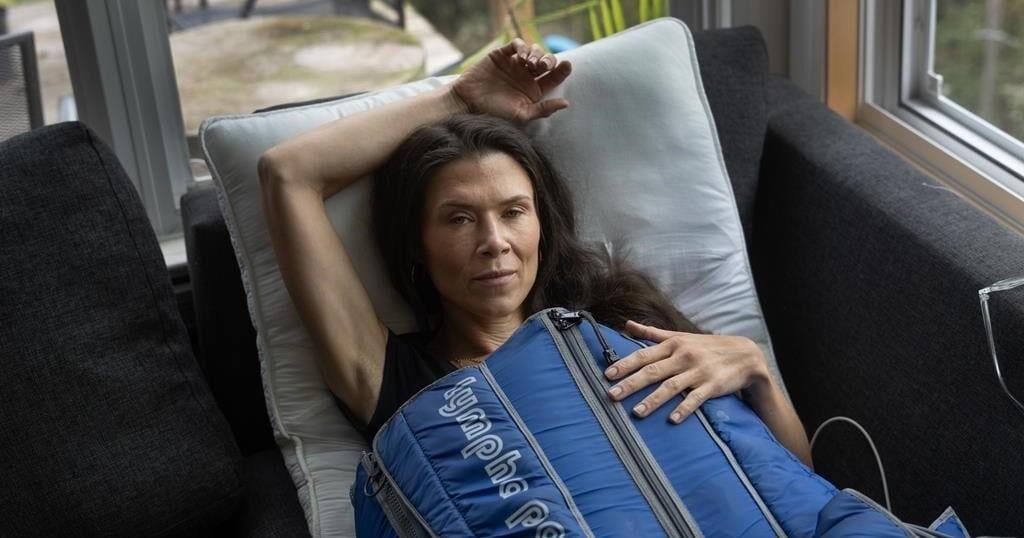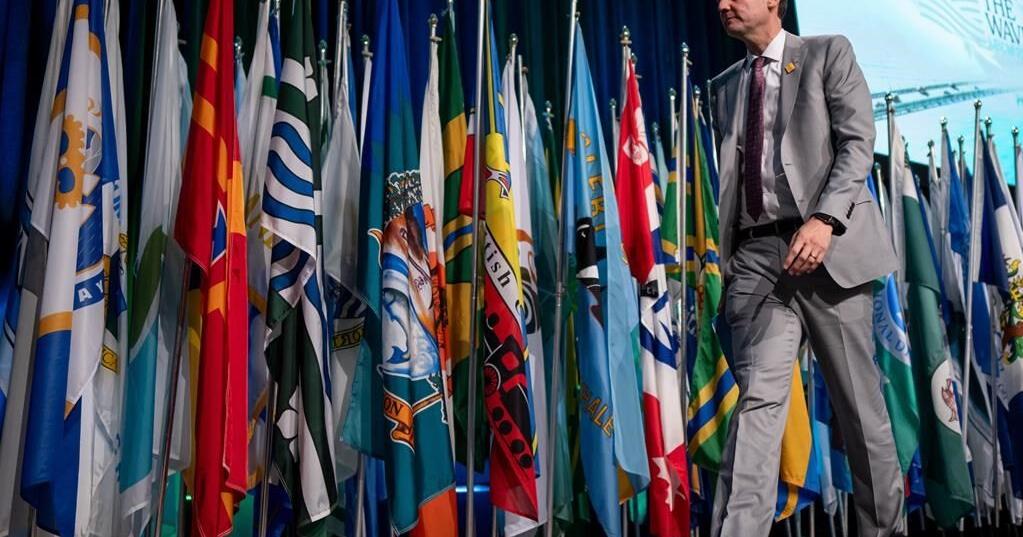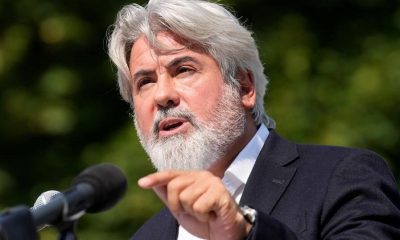HALIFAX – A Nova Scotia woman has applied for a medically assisted death, saying after years of battling to receive out-of-country surgery for an illness that causes “indescribable” pain, she struggles to maintain the will to live.
Jennifer Brady completed her MAID application in June. She has lymphedema in her legs, a condition in which tissues swell from the accumulation of fluids normally drained through the body’s lymphatic system.
In an interview Thursday, the 46-year-old mother of two said she has intense daily pain, skin infections that resemble a sunburn intensified “1,000 times,” and blood infections that exhaust her to the point “you feel like you’re dying.”
However, Brady said that after she received treatment in Japan in 2022 — at her own expense — her swelling decreased, particularly in her right leg, and some symptoms were relieved. She said she believes that if she can receive the funds to pay for more surgery, her condition can improve — as will her desire to remain alive.
The possibility that her health can improve is what led to her MAID request being denied.
In a letter sent to Health Minister Michelle Thompson on July 7, Dr. Gord Gubitz, the clinical lead of Nova Scotia’s MAID program, said his team is rejecting Brady’s application because her condition is not considered “irremediable.”
“It seems reasonable to me that if an assessment (and surgery, if clinically indicated) … could help to reduce Brady’s suffering and obviate the need to consider MAID, this option should be explored. Your office can make this happen,” Gubitz wrote to Thompson.
After telling her story to CBC this week, Brady said she has received online support from people offering encouragement and financial help. However, she said she still needs the health minister to authorize funding for treatment she cannot get in the province.
On Wednesday, Thompson told reporters, “I will not make a commitment to do that,” and then added, “If that individual will work with the department and reach out, perhaps there is another path forward.” The minister refused detailed comment, citing an ongoing court case and privacy law.
In Brady’s case before the Nova Scotia Supreme Court launched over two years ago, she took issue with the province’s decision to deny her funding for out-of-country care, arguing it was unreasonable and unfair.
In legal briefs, government lawyers argued Brady failed to receive a referral for the treatment. The lawyers said she was on a wait-list to see a Nova Scotia plastic surgeon and became “frustrated.”
Brady’s January 2024 affidavit responding to the lawyers said that given her physical deterioration, the plastic surgeon’s years-long waiting time and his lack of expertise in her illness, “the department created standards that were functionally impossible to meet.”
On Thursday, Brady said she found the minister’s latest comments frustrating and “somewhat disingenuous,” adding that they left her wondering whether Thompson had personally reviewed her case.
She said that even if she wins in court and is awarded about $60,000 in costs related to her 2022 treatment in Japan, the years of legal battles, the continuing pain and her deteriorating mental health have led to her decision that MAID is the best option. “It was after a winter where I could barely get out of bed and when I did, I just didn’t want to be here.”
Brady spends at least five hours daily in a full body massage machine that helps move fluid in her legs to reduce swelling. “I mean, what’s the point honestly? I’m in that machine and the machine itself is so uncomfortable.”
Applying for MAID “definitely isn’t a strategic move,” she said. “That’s not my plan A. I want to live. I want to be here for my kids. I love my job.”
“I want the option (of MAID) to be there. But if I were given the treatment today (for lymphedema) I would definitely take it,” she said.
Brady, a dietitian and professor at Acadia University’s faculty of nutrition, said she is also suffering from depression, a condition for which she’s been unable to take medicines as they tend to increase the swelling in her legs.
Her lymphedema developed after a hysterectomy to treat her cervical cancer in 2019. She said she was informed in 2021 that local surgical options weren’t available to her, which led her to Dr. Joshua Vortenbosch, an expert in lymphedema at McGill University. However, she was denied funding for the surgery in Montreal. The rejection led her to do research, and to her 2022 trip for surgery in Japan.
In Japan, she received lymphovenous anastomosis, a procedure in which a surgeon connects lymph vessels in the limbs to nearby veins to bypass damaged areas and restore the flow of lymph fluids.
This report by The Canadian Press was first published Sept. 20, 2024.
— With files from Keith Doucette in Halifax.























